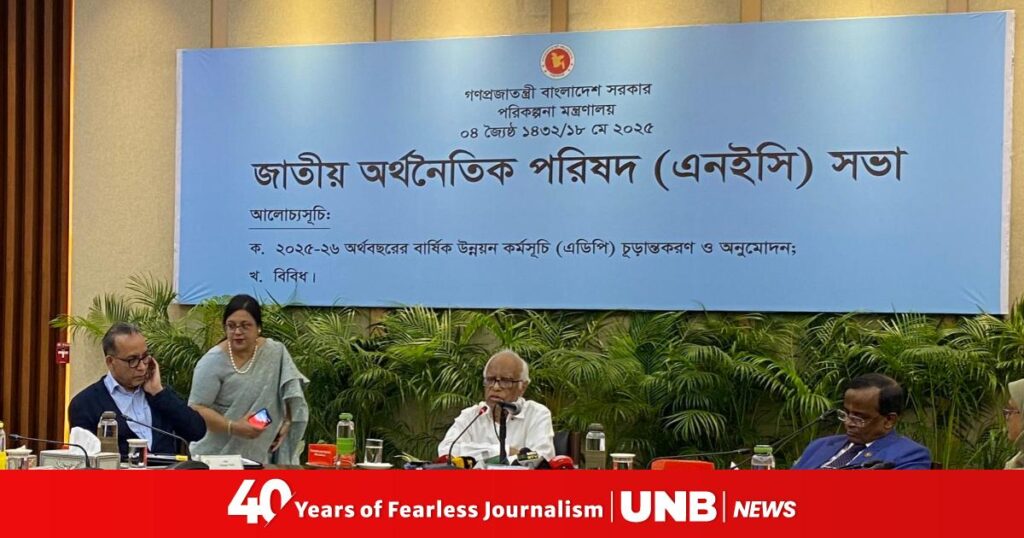Planning Adviser Wahiduddin Mahmud on Sunday said that the upcoming national budget (FY25-26) will focus on restoring economic stability, curbing inflation, ensuring discipline in budget management, and making public finance sustainable.
“The main strategy of this budget is to avoid falling into a debt trap — whether local or foreign — and ensure that loan repayments and development or operational expenditures do not exert additional pressure on the economy,” he said.
Wahiduddin made the remarks while briefing reporters after a meeting of the National Economic Council (NEC).
He acknowledged that the government is trying to break free from a vicious cycle of poor fiscal management seen in the past. While revenue collection cannot be increased overnight, the government will work to contain expenditures and limit the budget deficit to within four percent of GDP.
The planning adviser said that due to ongoing inflationary pressures, the interim government cannot immediately reduce subsidies across all sectors. However, he noted that the new budget will be a responsible one, with no populist expenditures aimed at short-term public appeasement that could lead to long-term liabilities.
He also said that no new mega or long-term development projects have been included in the upcoming Annual Development Programme (ADP), with the exception of the Matarbari Deep Sea Port project funded by Japan.
Despite some financial constraints, Dr. Wahiduddin added that the government is continuing to repay longstanding dues to development partners and foreign contractors.
NEC approves Tk 230,000 crore ADP for FY 25-26
Regarding the implementation of the Revised Annual Development Programme (RADP) for the current fiscal year, he noted that progress has been slower. This is due to the interim government’s post-August 5 scrutiny of ongoing projects, which resulted in reduced allocations and efforts to prevent fund misuse.
He criticised several mega projects such as Payra Port, Karnaphuli Tunnel, and the Bus Rapid Transit (BRT) system, saying these were launched during the previous Awami League government without proper long-term assessment.
ADP Size and Sectoral Priorities
According to Planning Commission officials, the size of the new ADP for FY26 stands at Tk 2,30,000 crore — an increase of Tk 14,000 crore or 6.48 percent over the revised ADP for FY25, which was slashed from the original Tk 2,65,000 crore to Tk 2,16,000 crore.
The new ADP emphasises sustainable, environmentally-friendly development with goals that include higher economic growth, increased per capita income, poverty reduction, job creation, and progress toward the Sustainable Development Goals (SDGs). Priority has been given to sectors such as agriculture and agro-industries, education, health, ICT, transport, power and energy, and region-based balanced development.
Among the sectors, transport and communication received the highest allocation with Tk 58,973.39 crore, followed by power and energy with Tk 32,392.26 crore (14.08%), education with Tk 28,557.43 crore (12.42%), housing and community facilities with Tk 22,776.40 crore (9.90%), and health with Tk 18,148.14 crore (7.89%). These five sectors account for 70 percent of the total allocation.
Finance Adviser to discuss NBR reforms with officials Tuesday
Top Allocated Ministries and Divisions
The Local Government Division received the highest allocation among ministries and divisions with Tk 36,099 crore. It was followed by:
Road Transport and Highways Division: Tk 32,329.57 crore
Power Division: Tk 20,283.62 crore
Secondary and Higher Education Division: Tk 13,625.03 crore
Ministry of Science and Technology: Tk 12,154.53 crore
Health Services Division: Tk 11,617.17 crore
Ministry of Primary and Mass Education: Tk 11,398.16 crore
Shipping Ministry: Tk 9,387.62 crore
Water Resources Ministry: Tk 8,489.86 crore
Ministry of Railways: Tk 7,714.99 crore
Projects under New ADP
The new ADP includes 1,171 projects, comprising:
993 investment projects
19 feasibility study projects
99 technical assistance projects
60 projects financed from the concerned organization’s own funds
Additionally, 79 projects will be implemented under the Public-Private Partnership (PPP) model and 228 under the Bangladesh Climate Change Trust Fund.
A total of 258 projects have been earmarked for completion during the fiscal year, including:
212 investment projects
11 feasibility studies
18 technical assistance projects
17 organisation-financed projects

